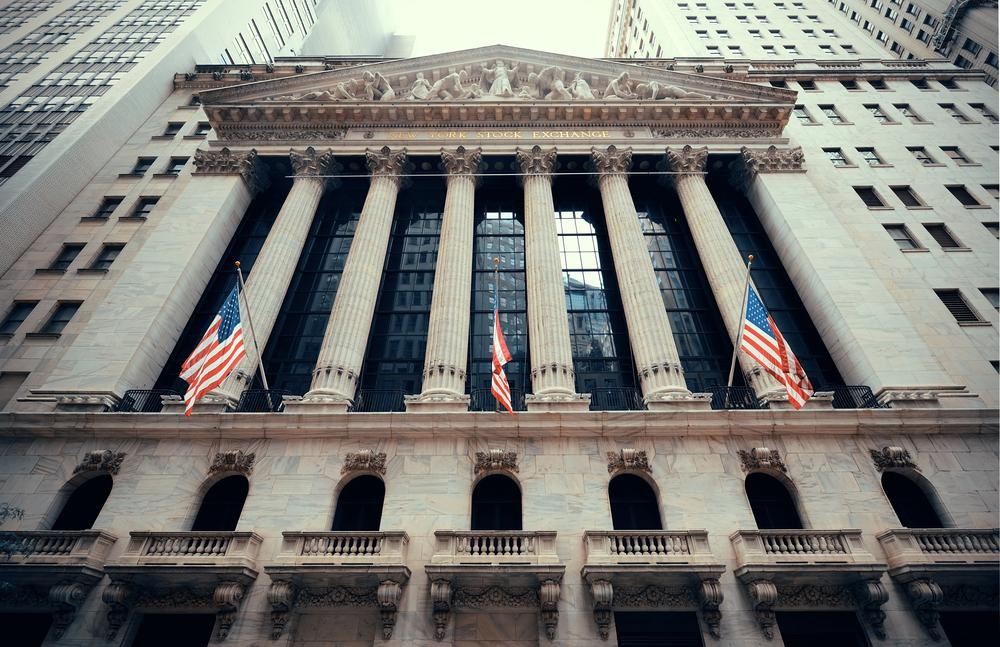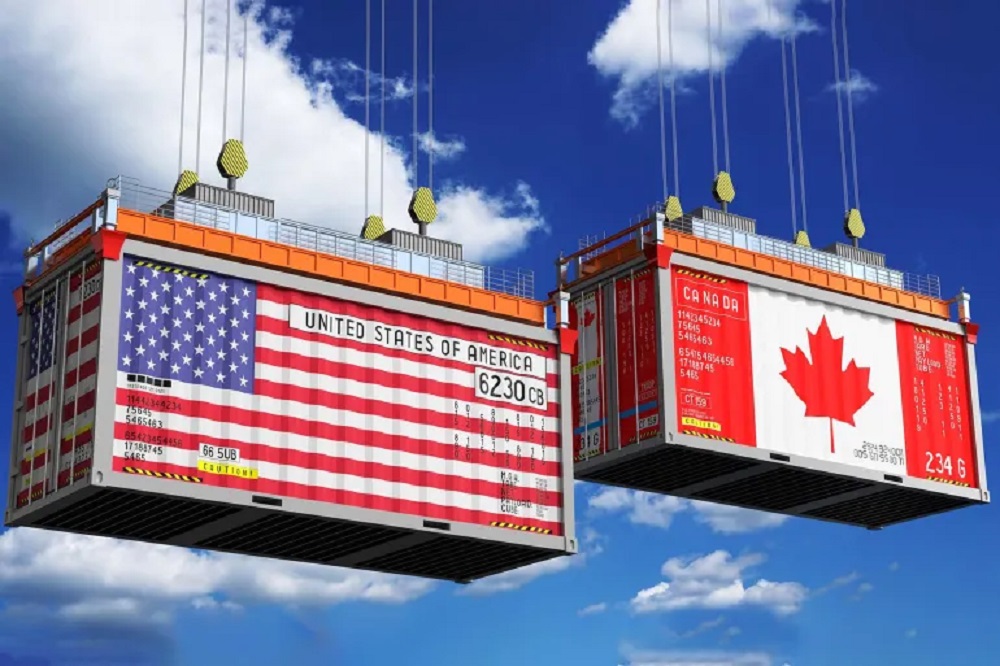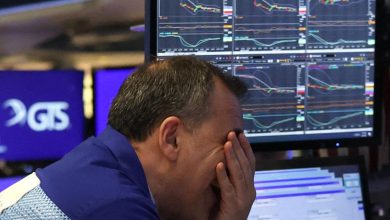$30 Trillion Wipeout: Global Shockwaves from Trump’s Tariff Earthquake
Apple, Amazon, Nike among biggest losers as markets react to Trump's steep import tariffs.

Watan-U.S. trade partners called for dialogue on Thursday, a day after President Donald Trump launched a massive trade offensive that caused global stock markets to drop and sparked fears of severe consequences for the global economy.
Wall Street saw a significant decline at the opening of trading Thursday, following Trump’s announcement of tariffs on imports from countries around the world. The move raised concerns over a slowdown in the U.S. economy and rising inflation.
The Dow Jones dropped by 2.81%, the Nasdaq lost 4.06%, and the S&P 500 fell by 3.39%.Shares of American clothing companies that rely on supply chains in China, Vietnam, Malaysia, and other countries also declined early Thursday.

Tech and Retail Stocks Slide After Tariff Shock
Stocks of companies like Nike, Gap, and Macy’s fell by more than 10% following Trump’s announcement of steep tariffs on countries from which these companies import shirts, pants, and other goods.
One of the biggest losers was Apple, which heavily relies on Chinese manufacturers — its stock dropped by 8.2%. Amazon shares fell 6.9%, and Nvidia lost 4.9%.
Angelo Kourkafas, Chief Investment Strategist at Edward Jones, said, “It’s clear that what was announced was closer to a worst-case scenario, and the markets weren’t prepared for it, so they’re reacting accordingly.”
Jason Schenker of Prestige Economics noted in a memo that the Trump administration might later drop the tariffs following negotiations over trade or other political priorities.
He added, “We see the Trump administration’s policies as embodying economic realism focused on results rather than diplomacy focused on process.” He also warned, “Risks of recession and inflation are increasing amid uncertainty about the tariffs.”

European and Asian Markets Drop Sharply
European markets fell steeply — Frankfurt dropped by 2.27%, Paris by 2.69%, and London by 1.54%. Japan’s Nikkei index fell to its lowest level in eight months.
Oil Prices Drop, Gulf Markets Slide
Stock markets in the Gulf closed lower on Thursday amid fears that U.S. retaliatory tariffs would worsen global trade tensions and potentially trigger a global recession.
The Saudi index, resuming after a four-day Eid al-Fitr holiday, fell 1.2%, with Al Rajhi Bank down 1.4% and Saudi mining giant Ma’aden dropping 4.9%. Saudi oil giant Aramco’s shares fell 1.7%.“Falling oil prices negatively affected the Saudi market,” one analyst said.
Oil prices — a key driver of Gulf financial markets — dropped around 6% after eight OPEC+ nations agreed to proceed with and accelerate oil production increases in May. Dubai’s index fell 1.7%, driven by a 9.7% drop in Emaar Properties, its biggest single-day fall since March 2020, after trading without dividend entitlements.
One analyst noted that declining investor confidence could continue to affect Dubai’s performance despite strong fundamentals and relatively low sensitivity to oil price volatility. Abu Dhabi’s index fell 0.8%. Bahrain dropped 0.6% to 1950 points. Kuwait’s index lost 0.4% to close at 8595 points.Qatar and Oman markets remained closed for the Eid holiday.
Outside the Gulf, Egypt’s blue-chip index, which also resumed after a four-day break, dropped by about 1%, with Commercial International Bank falling 3.3%.
China Vows to Respond
In a sign of growing fears of an economic slowdown, oil prices fell about 5%, while gold — a safe-haven asset — reached new highs.Beijing said Thursday it was “maintaining communication” with Washington on trade and economic matters while urging the U.S. to “immediately cancel” its punitive tariffs and vowing to respond.
European Commission President Ursula von der Leyen kept the door open for dialogue with the U.S., saying a negotiated solution was possible, while also affirming that Europeans were “ready to respond.” Berlin expressed its support for the EU’s pursuit of a “negotiated solution” with Washington.
“Looted, Robbed, Raped, and Destroyed”
When announcing the tariffs, Trump said, “Our country has been looted, robbed, raped, and destroyed by countries near and far, allies and enemies alike,” before listing the targeted trade partners. The protectionist offensive — unprecedented since the 1930s — includes minimum tariffs of 10% on all imports, with higher rates for countries deemed especially hostile on trade issues.
The general 10% tariff is set to take effect on April 5 at 04:01 GMT, with higher tariffs beginning on April 9. The increases are especially steep for China, whose products will face a new 34% import tax, on top of a previous 20% tariff already imposed by Washington.The EU faces a 20% tariff, Japan 24%, India 26%, and Vietnam a staggering 46%.
According to analysts at Oxford Economics, Trump’s tariffs and their fallout could significantly slow global growth to below 2%. Former Treasury Secretary Larry Summers under President Bill Clinton said on X Thursday that “Trump’s tariffs are the most costly and masochistic the U.S. has implemented in decades,” estimating losses of around $30 trillion due to Wall Street’s sharp decline before and after Trump’s announcements.
A report from a German research institute said the EU economy could lose €750 billion ($833.63 billion) due to the tariffs. Despite calls for dialogue, most countries are strongly critical of Trump.
The Japanese government believes its ally, the U.S., may have violated WTO rules and their bilateral trade agreement. Australia called the move “not the act of a friend,” and Bangladesh, the world’s second-largest clothing producer, called it a “severe blow” to its industry.
France, which held a meeting Thursday for representatives of its most affected industries, lamented the “huge difficulty” Europe faces and, like Berlin, expressed readiness to target American tech companies as part of a unified European response.
In Spain, Prime Minister Pedro Sánchez denounced a “return to 19th-century protectionism,” calling it “not a smart way to face 21st-century challenges in a deeply interconnected world.”

Russia and North Korea Excluded
The additional tariffs also target so-called “non-tariff barriers” to U.S. goods, such as health and environmental standards.The White House announced Wednesday night that some goods would be exempt: gold bullion, pharmaceuticals, semiconductors, copper, construction lumber, energy products, and minerals not found in the U.S.
However, the tariffs do not apply to Russia or North Korea, as they are no longer significant trade partners, according to a U.S. official. Mexico and Canada are also excluded from the new list, as signatories to the U.S. free trade agreement, but both will still be affected by a separate 25% tax on foreign-made cars that took effect Thursday morning.
These additional tariffs claimed their first victim Thursday when Stellantis announced a two-week shutdown of its Chrysler plant in Windsor, Canada.Germany’s auto industry strongly criticized the new tariffs, asserting that “everyone loses” as a result.
The U.K. was relatively unaffected by the 10% tariff as it is negotiating a bilateral trade deal with the U.S., but Prime Minister Keir Starmer said Thursday that the U.S. sanctions would still “impact” the British economy.
Trump presents the tariffs as a magic wand to boost U.S. industry, rebalance trade, and eliminate the budget deficit.




